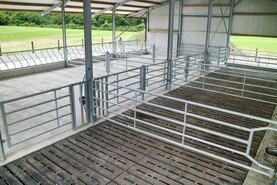There are farmers who don’t know anything about the residential zoned land tax and are farming land that may be rezoned for the provision of housing, IFA farm business chair Rose Mary McDonagh has said.
“Imposing a residential zoned land tax on farmers who happen to be farming in a certain area is another revenue collecting exercise.
“We would be looking for farmland to be exempt from this tax. I think it is very unfair that land which is used for food production will be taxed.
“Every ounce of ground that is used for food production is needed,” she said.
The taxation measure which will be implemented from February 2024 was announced in Budget 2022 and was introduced by the Finance Act 2021.
Purpose
According to the Department of Housing, Local Government and Heritage, the principal purpose of the residential zoned development land tax is to activate land which is suitably zoned and connected to, or has access, to services for the provision of housing.
Land that is in scope will be zoned for residential development or a mixture of uses including residential; be serviced or have access to servicing by water, waste water, road, footpath and public lighting; and not be affected by contamination or significant archaeological remains which would preclude development taking place.
McDonagh argued that the Government had plenty of other of options to look at, such as making use of already zoned premises in towns and villages, rather than taking income off farmers.
“These zoned premises could be used for both residential and commercial use. The amount of towns and villages that have every second door and window boarded up.
“They already have electricity, water, sewerage and footpaths outside the door,” she said.
Cost
The residential zoned land tax is an annual tax and will be calculated at a rate of 3% of the market value of the land.
The landowner is required to determine the market value of their land and to make returns and account for any tax due under self-assessment.
In the IFA’s proposal to have farmland exempt from the tax it said: “The significant divergence between the annual 3% market value tax liability and the potential income yield or earning potential from the farm land itself is also unproportionate and excessive, contrary to the general taxation principles and will result in many forced land sales and a distortion of the agricultural land market.”






 This is a subscriber-only article
This is a subscriber-only article











SHARING OPTIONS: